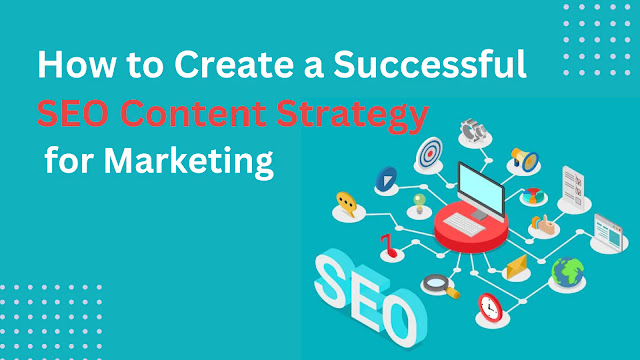How to Build an Effective Content Marketing Strategy for SEO
Introduction
In today's digital landscape, content marketing has become a crucial component of any successful SEO strategy. By creating and sharing valuable, high-quality content, businesses can attract and engage their target audience, build brand awareness, and ultimately drive more traffic to their website. However, creating content for the sake of it is not enough. To truly succeed in content marketing, you need to develop a well-crafted content marketing strategy that is specifically designed to support your SEO efforts. In this article, we'll provide you with a comprehensive guide to building an effective content marketing strategy for SEO, covering everything from keyword research and content creation to on-page optimization, promotion, and measurement. Whether you're a seasoned content marketer or just getting started, this guide will help you take your content marketing efforts to the next level and drive more organic traffic to your website.
Follow the below listed each point discussed in detail below.
1.Define Your Content Marketing Objectives and KPIs
Before you begin creating content, you need to define your content marketing objectives and key performance indicators (KPIs). What do you want to achieve with your content marketing efforts, and how will you measure success? Common content marketing objectives include driving more traffic to your website, increasing brand awareness, generating leads, and boosting sales. Your KPIs should be specific, measurable, and aligned with your overall business objectives.
2.Conduct Keyword Research
Keyword research is a critical component of an effective content marketing strategy for SEO. By identifying the keywords and phrases that your target audience is searching for, you can create content that addresses their needs and interests. Tools like Google Keyword Planner, SEMrush, and Ahrefs can help you identify relevant keywords and assess their search volume and competitiveness. Once you have identified your target keywords, you can use them to guide your content creation and on-page optimization efforts.
3. Create High-Quality, Valuable Content
Creating high-quality, valuable content is the cornerstone of any effective content marketing strategy. Your content should be informative, engaging, and relevant to your target audience. It should address their pain points and provide solutions to their problems. Depending on your target audience and marketing objectives, your content could take the form of blog posts, infographics, videos, whitepapers, case studies, or other formats. Regardless of the format, make sure that your content is well-researched, well-written, and optimized for search engines.
4. Optimize Your Content for On-Page SEO
Once you have created your content, you need to optimize it for on-page SEO. This includes optimizing your headlines, subheadings, meta descriptions, and image alt tags with your target keywords. You should also ensure that your content is easy to read and scan, with short paragraphs, bullet points, and clear headings. Finally, make sure that your content is mobile-friendly and loads quickly, as page speed is an important ranking factor for search engines.
5. Promote Your Content
Creating great content is only half the battle - you also need to promote it to ensure that it reaches your target audience. There are many ways to promote your content, including social media, email marketing, influencer outreach, and paid advertising. Your promotion strategy should be tailored to your target audience and marketing objectives, and you should measure the effectiveness of each channel to identify the most effective tactics.
6. Measure and Analyze Your Results
Finally, you need to measure and analyze the results of your content marketing efforts to determine what is working and what needs improvement. Use tools like Google Analytics, SEMrush, and Ahrefs to track your traffic, engagement, and conversion rates, and compare your results against your content marketing objectives and KPIs. Use this data to refine your content marketing strategy over time and optimize your efforts for maximum impact.
Conclusion
In conclusion, building an effective content marketing strategy for SEO requires careful planning, execution, and analysis. By defining your objectives, conducting keyword research, creating high

Comments
Post a Comment